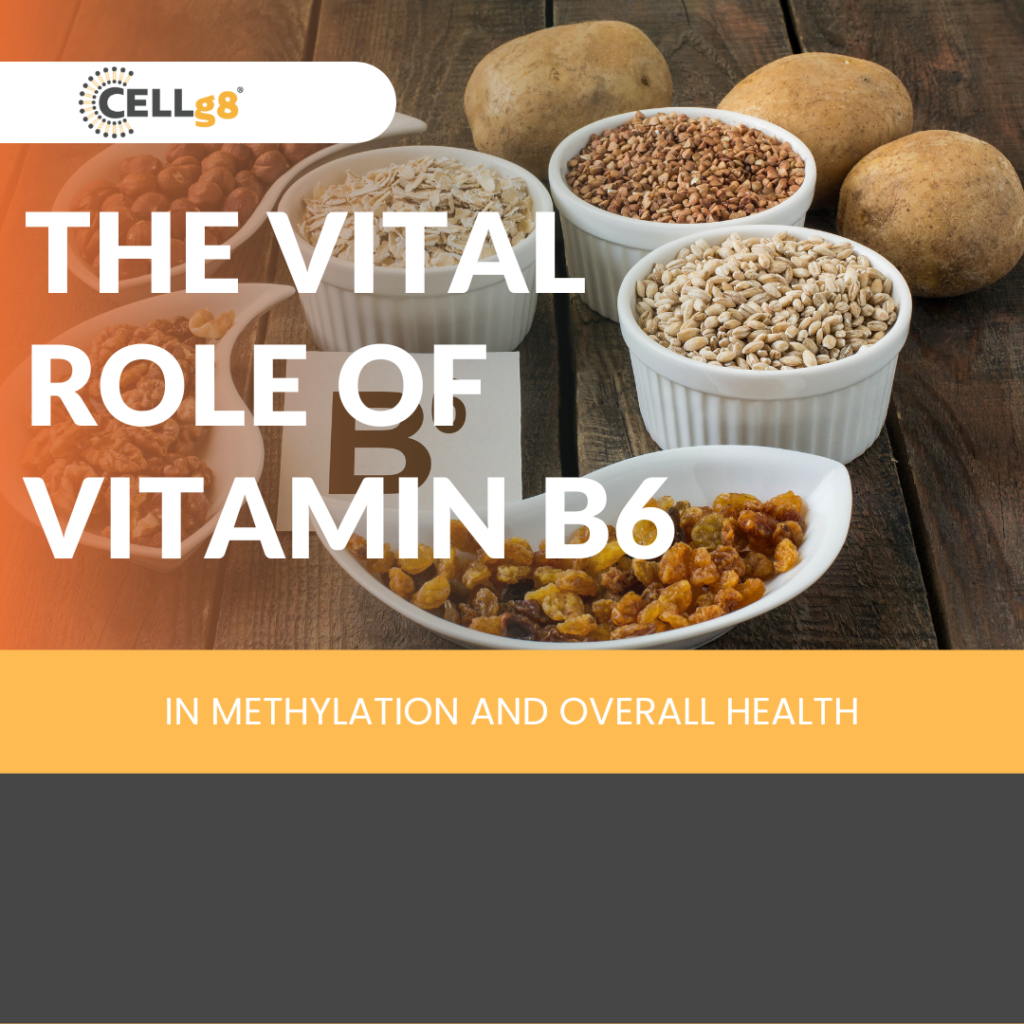Vitamin B6, also known as pyridoxine, is an essential nutrient that plays a critical role in methylation biochemistry.
Vitamin B6 is required for the formation of S-adenosylmethionine (SAM), which is the main methyl donor in the cell. SAM is used in many methylation reactions, including the methylation of DNA and proteins.
Vitamin B6 also plays a role in the metabolism of homocysteine, an amino acid that can be toxic if its levels become too high. Vitamin B6 is a cofactor for the enzyme cystathionine beta-synthase (CBS), which catalyzes the conversion of homocysteine to cystathionine. This conversion is an important step in the methylation cycle, as it generates cystathionine, which can be converted to cysteine, a precursor for the biosynthesis of glutathione.
Vitamin B6 deficiency can lead to disruptions in the methylation cycle, leading to changes in the expression of genes that are involved in an unhealthy methylation cycles. Adequate intake of Vitamin B6 is important for maintaining normal DNA methylation and proper gene expression, and low Vitamin B6 intake has been associated with an increased risk of lower health.
References
- https://www.ncbi.nlm.nih.gov/pmc/articles/PMC7354546/
- https://www.ncbi.nlm.nih.gov/pmc/articles


